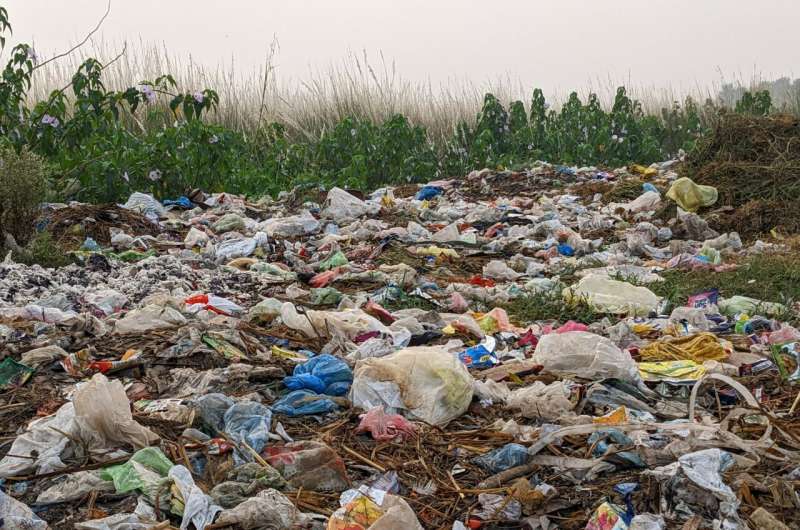Used plastic bags at a dump. An estimated 855 billion sachets are sold globally each year with Southeast Asia consuming nearly half of the total. Credit: Sohail Nawaz from Pexels
Small plastic sachets commonly used in low- and middle-income countries must be phased out and packaging reuse systems promoted, urge campaigners and waste pickers, as new analysis reveals major corporations have failed to curb their use.
Pocket-sized individual portions of goods ranging from shampoo to instant coffee have become popular in lower-income communities for their affordability.
An estimated 855 billion sachets are sold globally each year with Southeast Asia consuming nearly half of the total and this figure projected to rise to 1.3 trillion by 2027, according to environmental groups.
But the convenience of sachets comes with a heavy environmental cost as they end up as significant contributors to plastic pollution. Their commonly multi-layered design, using different materials, makes them hard to recycle.
Xuan Quach, coordinator of Vietnam Zero Waste Alliance, told SciDev.Net, “We need a multi-pronged approach, phasing out sachets alongside significant investments in reuse systems.”
Consumer goods giants Unilever, Nestlé and Procter & Gamble are among the biggest contributors to plastic sachet pollution in developing countries in Asia, despite promises to reduce plastic packaging, according to a multi-country environmental audit report.
2024-05-25 01:00:02
Post from phys.org
